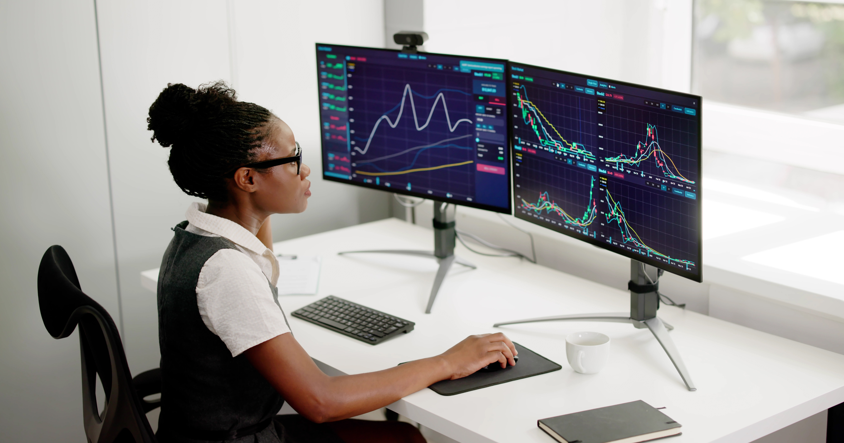
Online trading platforms are in their hundreds, spoiling you for choice. Having so many options to choose from can make it challenging to determine which one will actually meet your needs. Every platform markets itself vigorously, promising big returns, advanced tools, and low fees. However, your experience might be much different from what’s advertised.
So, how do you eliminate the dozens of subpar platforms and choose the best? This article walks you through some essential tips on choosing the best online trading platforms.
1. Check How Secure the Platform Is
Security is a top priority for all online dealings, including trading. Usually, you have to provide your personal information when creating accounts with trading platforms. You’d want all the information you give out not to leak to malicious persons. And that’s the essence of proper security.
At a minimum, the platform should offer two-factor authentication (2FA). Once you enter your primary password, a code is sent to your email or phone for verification. The two steps make it hard for hackers to gain access to your account.
Another critical security measure when choosing an online trading platform is encryption. With this, all your data is stored and transferred in undecipherable format. Even if hackers get hold of it, they won’t understand a thing.
Lastly, the platform should preferably be regulated by a trusted authority. Some of the top online trading regulatory authorities include the following:
- U.S. Securities and Exchange Commission (SEC)
- Financial Conduct Authority (FCA)
- Australian Securities and Investments Commission (ASIC)
- Cyprus Securities and Exchange Commission (CySEC)
- Securities and Futures Commission (SFC)
Of course, there are other notable ones aside from these. Platforms certified with these regulators meet strict legal and ethical standards, providing an extra layer of protection for traders.
2. Consider the Range of Assets Offered
Online trading assets are many, including stocks, forex, cryptocurrencies, and commodities. Not every platform offers all assets. So, you must ensure the platform you choose supports the exact type of assets you’re interested in. A range of asset classes is usually advantageous as it allows flexibility in your investment strategy.
To add to that, check whether the platform provides access to global markets. You’d want to be able to trade international stocks and currencies instead of limiting yourself to just the local ones. This way, you can diversify your portfolio and take advantage of global trends.
3. Scrutinize the Fees and Commissions
Online trading already has associated losses, and you wouldn’t want to lose more in the name of fees and commissions. Otherwise, you might find it challenging to break even or become profitable.
Some brokers charge commissions on each trade, while others may offer commission-free trading but impose other costs. Make sure you understand all the costs associated with trading on any platform. Check whether the spreads are reasonably low, as this determines the profits you make on each trade. To note, some platforms may have hidden fees, such as withdrawal or inactivity fees. These may impact your bottom line.
For better judgment, compare the total cost of trades across multiple platforms. This lets you choose the best deal.
4. Test the Platform for User-Friendliness
Trading is in itself nerve-wracking. And you don’t want to add to the stress by using a platform that’s too difficult to navigate. A complicated and cluttered interface slows you down and increases the risk of making mistakes, especially if you’re just getting started with trading.
You’d also want to check what trading tools and analysis features they have. These tools help you get a clear picture of market trends, which is the primary basis for profitability in online trading. Real-time chart data will also help in fast and precise decision-making.

5. Assess Customer Support Availability and Quality
At one time or the other in the course of online trading, you’ll run into issues that require assistance from the platform’s customer support agents. You expect them to be readily available and address your concerns promptly and warmly. Customer support representatives who don’t treat you kindly aren’t worth your time.
A 24-hour availability is also preferable, given that the markets are usually open around the clock and traders are spread across the globe in different time zones.
On the same note, check what users of the platform in question opine. Did they like the customer support? Or is all you can read just complaints? Too many people giving negative feedback about a particular platform is a red flag. Abandon such for better ones that guarantee a positive experience.
Conclusion
Choosing a trading platform is one of the initial steps when getting started with online trading. The right platform contributes significantly to the outcome of your investment. You’d want a broker that offers the required support, has low trading fees, is secure, and provides a wide range of trading assets. The peace of mind that comes with working with a reliable, honest forex broker could contribute to your profitability.







